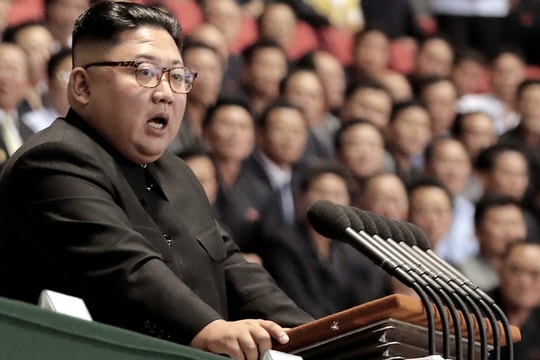What would the global economy lose if the Korean War broke out?
The world economy would be disrupted and severely damaged if war broke out in North Korea, according to Capital Economics.
US President Donald Trump's warning of "fire and fury" to North Korea has shaken markets around the world. If war breaks out, the world economy will suffer a lot of damage.
An analysis by Capital Economics shows that the production and supply chains of everything from smartphones to cars to TV screens will be significantly affected, damaging global growth and pushing up prices. Because, South Korea supplies the majority of the world's electronics.
North Korea's neighbor is the world's largest producer of liquid crystal displays - screens used in televisions and other electronic devices - with about 40% of the global market share. It is also the world's second-largest maker of semiconductors - used in smartphones - with a 17% market share.
At the same time, South Korea is also one of the world's leading automobile manufacturers and home to three of the planet's largest shipbuilders.
 |
South Korea's trade turnover in 2016. Photo: Bloomberg |
"If South Korea's manufacturing sectors were severely damaged by war, the world would suffer shortages of many goods. The disruption would last for a while, it would take about two years to rebuild a semiconductor factory," said economists Gareth Leather and Krystal Tan.
The shipping industry would also be at risk. Any conflict could potentially paralyze routes off the east coast of China, the world’s largest trading nation. If this jeopardized cargo ships entering and leaving Chinese ports, it would inflict further damage on the global economy, according to Capital Economics.
For the United States, the damage could be even more severe. Federal debt will rise to cover the costs of war and reconstruction. If the United States had to spend as much on reconstruction in the Korean Peninsula as it did in Iraq and Afghanistan, the national debt would rise by another 30 percent, according to Capital Economics.
Many experts now say the concerns are overblown, pointing out that previous tensions eventually dissipated.
Even without military action, however, rising tensions are bad news for growth in North Asia, according to Bloomberg Intelligence. "For South Korea, these moves have threatened investment and hiring. For Japan, a stronger yen has hurt corporate profits and the central bank's reflation plans," Bloomberg noted.
According to VNE
| RELATED NEWS |
|---|



